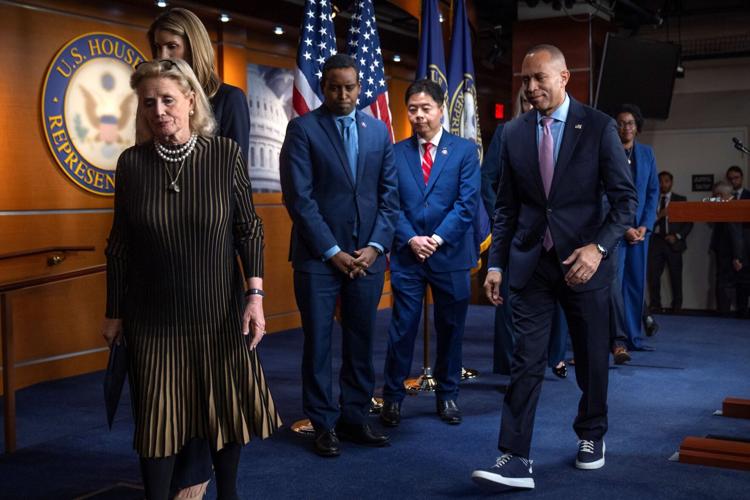Many Democrats were crying in their eggnog as the political year closed. We failed to win back the House of Representatives and lost the Senate and White House --even the popular vote. Three issues add to our tears as we enter 2025 in the political wilderness.

Dan Turrentine
We are leaderless. Republican President-elect Donald Trump has been meeting with world leaders, negotiating to end wars, driving economic news and dominating news cycles. Conversely, Democratic President Joe Biden is largely missing in action, as is Vice President Kamala Harris, who reportedly is debating whether to run again for president in 2028, for governor of California in 2026 or exit politics.
Meanwhile, congressional leaders Sen. Chuck Schumer and Rep. Hakeem Jeffries seem invisible, taking the temperature of colleagues and privately planning the coming year. Governors are thinking about 2028 and want no public role in the party’s soul searching.
People are also reading…
Democrats also are uncertain of their message. They're reflecting on "woke" issues, debating if we are economically too liberal or too moderate, or unsure how to address chaos abroad (Israel and Ukraine) and domestic (immigration and public safety).
Equally concerning, Democrats didn't engage enough during the last election with popular podcasts and influencers, many of whom knew their audiences were uncomfortable with Democratic positions. Trump consistently engaged with them for the last four years. Audiences saw him as authentically sharing their values, a cornerstone of voter intensity and engagement.
Democrats need to solve their new media problems of today and figure out the next influential platforms for tomorrow.
Finally, Democrats lack an agenda. I spend most of every day consuming, analyzing and discussing politics. I have no idea what Biden or Harris wanted to do if they won. What were the motivating principles, other than defeating Trump? What made them want to get out of bed every day? Democrats offer few if any bold ideas that inspire the majority of voters, let alone the party faithful.
While the glass appears half empty, I am optimistic. In defeat, the party can consider new voices, examine how to expand its coalition, seek a new message and fresh agenda.

House Minority Leader Hakeem Jeffries, D-N.Y., right, leaves a press conference with his new leadership team Nov. 19 on Capitol Hill in Washington. From left Reps. Debbie Dingell, D-Mich.; Lori Trahan, D-Mass.; Joe Neguse, D-Colo.; and Rep. Ted Lieu, D-Calif.
Who are the candidates we should watch for? I don’t know, and that’s a good thing. Professionals should not have the answers readily available, which has been part of the problem for the last 10 years. Winning candidates understand their community, its people and issues. They offer clear and bold solutions.
In 2013, the Republican National Committee spent millions of dollars on an autopsy of Mitt Romney’s failed presidential campaign, culminating in a set of solutions to win in 2016. Many GOP candidates for president embraced most or all of that report.
But one candidate did not. He went in the opposite direction, proposing to aggressively stop illegal immigration, redo free-trade deals and end the forever wars of Afghanistan and Iraq. The Republican establishment and its traditional media allies were aghast at these ideas, believing they would lead to a generation of failure.
That candidate’s name was Donald Trump.
Turrentine is a former Democratic strategist. He wrote this for InsideSources.com.
Who are the candidates we should watch for? I don’t know, and that’s a good thing.









